- Home
- Karen Kingsbury
To the Moon and Back Page 3
To the Moon and Back Read online
Page 3
The way it felt twenty-three years ago, when he was buried in the rubble of the Alfred P. Murrah Federal Building.
A quick look at his arms and he could see them. Jagged scars that crisscrossed his forearms. Sure, they had faded, but they were still there. He ran his hands over the marks and looked up again. Yes, today would be the same as every anniversary that had come before it.
He would go through the gate with the others and make his way to the outdoor area. In utter silence he would find the chair with his mother’s name and he would leave her a single long-stemmed rose. Then he would place his hand on the trunk of the Survivor Tree and he would try to separate his memories from the long-ago news accounts of the day. The ones still up on YouTube.
Brady took a deep breath and removed his helmet. He set it in the compartment at the back of his bike and pulled the paper bag with the rose from the same spot. Then he headed for the front gate.
Of course, there was one more reason he came every year. At least for the last eleven years. The reason was simple. The chance that he might see her. Brady clenched his jaw and stood a little straighter.
Her name was Jenna.
He didn’t know her last name. She was a girl he’d met only once, here at the memorial site on the twelfth anniversary of the bombing. Back when they were both only seventeen. Back then she’d been a wisp of a girl with forever long legs and the face of actress Emma Stone. At least that’s how he remembered her.
And Brady remembered her every day.
Jenna. The only girl in the world who would ever fully understand him.
Brady paid his admission and thought the same thing he did every year: Survivors should get in free. He shoved his free hand into the pocket of his black jeans and made his way out back to the field of chairs.
Like every anniversary there were more people here than usual. The noise wasn’t soft and reflective, but more an intentional somberness. As if people knew they should be quiet. Respectful. But it was forced. Because they didn’t have a million memories clawing and fighting their way to the surface.
The way Brady did.
His sunglasses were still on, where they would stay. No one ever saw Brady Bradshaw cry. He would make sure about that. Also because he didn’t want to be noticed. The Survivor show had highlighted his history, his connection to the Oklahoma City bombing. Since then occasionally he’d responded to a call and someone would identify him. Dark hair. Tall. Built like a professional quarterback. At least that’s how they described him on television.
Whatever. People recognized him. That was fine. Brady liked the people of Oklahoma. They were the family he didn’t have. He enjoyed talking to them. Signing the occasional autograph, taking the handful of selfies in a month’s time.
Not today.
Her chair was in the third row, somewhere near the middle. Brady moved past the people taking pictures and whispering. Beyond the handful of visitors carrying saplings from the Survivor Tree. No one seemed to notice him as he made his way. He was as familiar with this walk as if he lived here. And in some ways maybe he did.
Always would.
Three chairs down, and then—
There it was. Her chair. The one with her name etched into it. Proof once again that she had died here on that terrible day. Brady felt the first sting of tears. The routine was the same every year. He set the rose in the vase. Every chair had a vase attached to the side of it.
But not every chair had a rose.
With both hands Brady gripped the edges of the seat. He closed his eyes. There it was. The familiar feeling that came over him, the same one that hit him every anniversary. An aching, desperate, deep sense of protection. As if Brady Bradshaw, strong, tall, broad shoulders, could certainly do something to keep his mother safe.
The way she had done for him that horrible day.
“Mom. I’m here.” He choked on the words. Then he ran his fingers over the plate with her name.
Sandra Bradshaw.
Two tears trickled down his cheeks, but Brady ignored them. Almost didn’t notice. This was his time to remember. He wasn’t in a hurry.
A few photographs of Brady’s mother had been collected from their apartment after her death. Brady kept them in a small flip-book in a drawer near his bed.
That was it. Six pictures. The only evidence that his mother had ever existed. Brady thought about the photographs. One was his mom in her first year of college. The year she got pregnant with him. She had blond hair past her shoulders and a graceful, athletic build. She had gone to school on a tennis scholarship.
But that had ended when she found out she was having a baby. Brady had no idea who his father was or why he had abandoned his pretty mom. From what Brady could piece together, his mother hadn’t been close with her parents. She had moved in with a few girls and gotten a job waiting tables.
The second picture was of her with two friends, all of them in their restaurant uniforms. In both photos, his mom’s eyes were bright and happy. Young and full of life. The rest of the images grew less carefree. Deeper. But whatever the details of her story, Brady could see his mother had loved being a mom. She had loved her boy. Brady was everything to her.
The next four pictures were of the two of them. Her and him. One when he was hours old, lying in her arms, still in the hospital. Another when he was maybe two. He wore overalls and sat on his mother’s hip, him grinning up at her. The next must’ve been taken at Christmastime when he was maybe four, and the last one was from his fifth birthday. In that photo, his mom stood beside him, her arm around his shoulders while he blew out the candles on what was the last birthday cake she’d ever make.
Yes, Sandra Bradshaw had loved being his mom.
The only other keepsake Brady had was an old weathered children’s book. The one his mom had read to him every night at bedtime.
To the Moon and Back.
Brady gripped her chair and let the memories come. There were so few, he had to concentrate. Even then he wasn’t sure if they were real or something he imagined. One moment he recalled was of his mom at nighttime. Maybe a few weeks before the bombing.
In the memory, Brady was wearing green race car pajamas. He could see himself, running into his room and hopping on his bed, his mom behind him. It was the clearest real-life picture Brady had. The one he held in his heart. His mother’s blond hair windblown. Beautiful. Happy. Her eyes bright with laughter.
No hint of the tragedy to come.
“Brady boy, it’s time for your story.” Her singsong voice had called to him then. It called to him still.
And she was sitting on the bed beside him and opening their favorite book and reading every line, every page. “I love you to the moon and back, Brady. I always will.”
He had giggled and laughed and yawned through the story. And she was turning off the light and lowering her voice. “Let’s pray to Jesus.”
“Yes, Mommy.” In his memory it was always Yes, Mommy.
And she was praying for God to put His angels around Brady and their little apartment and for God to show him the good plans He had. “You’re going to do great things when you grow up, Brady. Very great things.”
Her smile had lit up his heart and then she was leaning close and kissing his cheek and tucking him in. Her hands soft against his arms. “I love you, Mommy.”
“I love you, too, Brady.”
Brady blinked and two more tears slid past his sunglasses and onto her memorial chair. There were only a handful of other memories. Mainly ones from the building that day. He and his mom had done errands together. Brady hadn’t felt good. He’d had a cough, so he’d stayed home from preschool.
They had gone to the bank to pay bills. At least he thought that was why. And then they went to the Murrah Building to see about getting help. That’s what his mom had told him. Brady had long since understood that the help must’ve been financial aid. Housing assistance or food stamps. Something to ease the burden of being a single mom and living with very little i
ncome.
Whatever the reason, they were in the building that morning. Brady felt his heart rate speed up. The way it always did at this point in the flashback. They were in line and Brady was playing with the stanchion.
The gray weathered filthy stanchion.
And his mom was saying, “Don’t touch that, Brady boy. You’ll get germs.” And she was looking right into his eyes and he was staring into hers. Her sweet blue eyes. She smelled like minty toothpaste and flowers. The way she always smelled. She smiled at him. The warmest, most wonderful smile. Her blond hair spilling over her shoulders, framing her face. And she had touched his cheek. “We’re almost done here.”
Those were her last words before the bomb exploded.
We’re almost done here.
Brady’s next memory was cold and frightening and painful.
Even still.
The next thing he knew, he was lying in a hospital bed with tubes attached to his arms. His mom’s friend was there. He couldn’t remember her name, but she had dark hair and she was crying. Crying hard. She had her hands over her face.
Brady tried to talk and she must’ve heard him because she jumped up and came to the side of his bed. “Brady . . . can you hear me?”
The room was spinning a little. Brady could still feel the dizziness every April 19 when he allowed himself to go back. He looked at the woman, stared at her and tried to feel steady and strong and brave. “Wh . . . where’s my mommy?”
And the woman cried harder. Tears streamed down her cheeks. Or maybe those were the tears sliding down Brady’s face now. The memory was old and grainy and fainter every year.
That’s when the woman put her hand on his little arm. She smelled like pizza. Nothing like his mother. “Brady . . . I’m so sorry, honey.”
Whatever was she sorry for? Brady couldn’t understand. And why was she crying? Those were the thoughts in his little five-year-old mind. But before he could spend any real time wondering, the woman told him.
His mother was dead.
She rambled on, doing her best to explain what she thought he wanted to know. How a bad guy had parked a big truck near the building and blew it up, and how there had been flying glass and metal and concrete. Which was why his arms had bandages all around them. Brady was almost certain he could remember the woman saying all that.
But the part he was absolutely sure about was what she said next. She told him the reason he didn’t have any cuts on his face or his head was because the very last thing his mother did before she died was cover him.
She protected her little boy. Guarded him at the expense of her own life.
When the bomb hit that Wednesday morning, it ripped the front off the building, leaving a gaping hole and exposing every floor. Brady and his mom hadn’t fallen to the ground along with the mountain of people and debris that collapsed that day. Instead, they were buried under rubble on the fifth floor. Later Brady learned from the paperwork in his mother’s things that a chunk of steel had hit his mom in the head while she lay over Brady.
That was how she died.
The rest of the details were a mix of Brady’s memories and news accounts he’d studied. For years after the bombing he had been obsessed with details about survivors and the monster who did the deed.
At least until five years ago. At that point he’d had enough of the true accounts. He still visited the memorial each year, but otherwise he lived his life. Brady let the memory fade into the cool wind around him. With no family to take him in, his mother’s friend had kept him at her house. But only until the state found his first foster home.
After that, his childhood was more like a court dossier as he was passed from one foster home and social worker to the next, shifting between three elementary schools, one middle school and two high schools until he graduated.
His sophomore year, on the anniversary of the bombing, Brady connected with a couple who had lost their baby in the attack. The little boy was one of nineteen children killed in the daycare center on the second floor of the building. From their first meeting, the woman and her husband had embraced Brady. They would’ve done anything for him. But Brady struggled with one thing.
The husband and wife were Christians.
Brady didn’t hold that against them, exactly. Faith was a personal thing. He just didn’t want to be around it. If God was for him, then why did the bombing happen? What about the good plans God was supposed to have for him? And how come evil was so much a part of this world? None of it made sense. So while he still stayed in touch with the couple, he mostly kept to himself.
When he turned eighteen he started volunteer work with the Oklahoma City Fire Department. Two years later they hired him. Ever since then he’d been doing something for strangers that no one had been able to do for his mother.
Helping people survive tragedies.
Brady used the fabric of his sweatshirt to dust the top of his mother’s memorial chair. The S in Sandra looked grimy. A little spit on his sleeve and he used it to work the dirt free. He stood straight again and studied her name. Yes. That was better.
He ran his hand over the letters one more time. “Next year, Mom. I’ll be here.”
The tears welled up again. He blinked them back, his sunglasses firmly in place. Then he turned and walked away. He knew where to go next. He moved across the open space to the reflection pond.
He took a seat on an empty bench and stared at the two bronze walls on the other side of the water. They stood four stories high. Engraved at the top of one was a simple time stamp: 9:01. The other was engraved with a different one: 9:03.
The first one represented the minute before the bomb went off. That morning at 9:01, when life was still whole and innocent and beautiful. Not just for Brady and his mother, but for everyone in the building.
Right up until the explosion.
Brady closed his eyes. The dirty gray stanchion. The smell of the musty government office. The people in line ahead of them. We’re almost done here. Almost done.
He squinted and shifted his gaze to the second one. 9:03 . The minute after the bomb went off. People in Oklahoma City liked to say that time stamp represented the first minute of whatever would come next. The beginning of life after the bomb. The start of recovery. The numbers were meant to give victims and their families and all who loved the city a belief in one important idea:
Healing was possible.
Brady worked the muscles in his jaw. Never mind any of that. For him it would always be 9:02. The minute the bomb went off. There was no fancy wall memorializing that moment. An ache filled his chest and pushed down on his soul. Breathe, Brady. Take it in. He lifted his gaze to the sky. The explosion ripped through his life every morning, keeping him from something that came easily for most people:
Love. All kinds of love.
Letting someone in would mean the possibility of losing that person. Brady hadn’t figured out how to do that, so he hadn’t found healing. And he was almost certain he never would. Every now and then his buddies at the firehouse tried to set him up with one of their sisters or friends. Brady would last one or two dates. Once in a while he would spend a couple weeks or a month interested in a girl. But always things fell apart. Brady was never surprised. Not only did he have trouble loving, but the reverse was true, also.
He wasn’t easy to love.
Girls didn’t understand him. One date put it succinctly: “You’re gorgeous on the outside, Brady. But you’re a haunted house on the inside. I don’t want to get caught in the cobwebs.”
Brady thought of it another way. His heart was like the Murrah Building. Still in pieces from the aftermath of the bombing. The way it had been since he was that five-year-old little boy, waking up in the hospital.
Since high school, Brady lived alone, no roommates. He liked it that way. Besides, he was hardly ever home. When he wasn’t working, he volunteered with several city service groups. The work gave him purpose. If God wasn’t going to help the people of Oklahoma City, then
Brady would step in. It was what he lived for. Helping other people. That and one other thing.
The hope that someday, somehow he might find Jenna.
Brady stood and walked around the pond to the hundred-foot section of chain-link fence. Here was where he would spend most of his time this morning. Looking at the letters and pictures and hand-drawn cards people would leave today.
Eleven years ago, Brady had met Jenna here at this very spot. But that was another story. Something he wouldn’t think about until later. Depending on how he felt. Right now he only wanted to find a spot in the fence for the letter and wait. In case she showed up the way she had that day.
Brady took the letter from his pocket. It was a copy. Every year he wrote her a letter and always he kept the original. That way if he ever found her, she could have the whole collection. One for every year.
Proof that Brady had never forgotten her.
He took a deep breath and read this year’s letter once more. He’d written it last night. Usually that was when the words came to him—the day before the anniversary. From his other pocket he pulled a piece of blue ribbon. He rolled the letter like a scroll and tucked it into the chain link. Just above a large red paper heart with the words We miss you, Papa scribbled in crayon across the front. Next to a faded copy of an older photo. A husband and wife on their wedding day. Four words were handwritten across the top: I miss you still.
Sorrow rushed at him like a tsunami. Brady tried to steel himself against it, but then he moved closer to the fence. Closer to the heartache. He grabbed the chain link and squeezed his eyes shut. Why? Why would someone fill a truck with fertilizer and blow it up in front of the federal building?
How could anyone hate that much?
Brady felt his tears become sobs. Deep. Quiet. Relentless. He fought them with everything in his being. It was time to move on, time to get past this. If only he could. Because for all the people he had ever rescued, the one person he couldn’t save faced him in the mirror every morning.
For a long moment Brady didn’t let go of the chainlink. Couldn’t let go. So much pain. So much hurt and loss. Generations changed forever. Brady clenched his teeth and finally . . . finally he found control again. He sniffed and willed his tears to stop. He wanted only one thing. The same thing he always wanted.

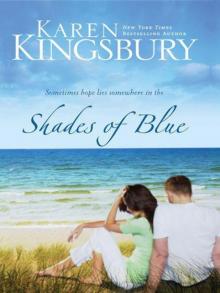 Shades of Blue
Shades of Blue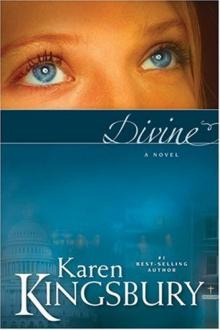 Divine
Divine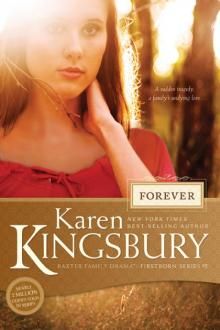 Forever
Forever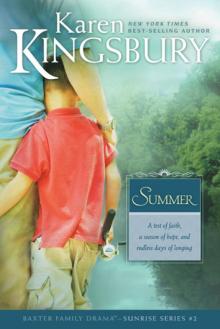 Summer
Summer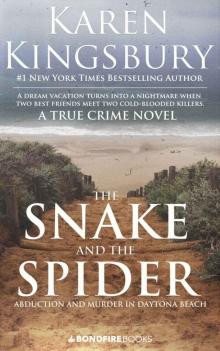 The Snake and the Spider
The Snake and the Spider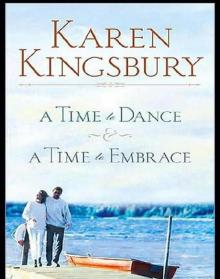 A Time to Dance
A Time to Dance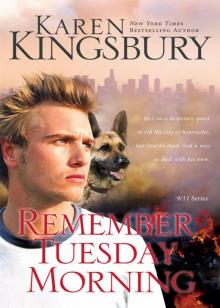 Remember Tuesday Morning
Remember Tuesday Morning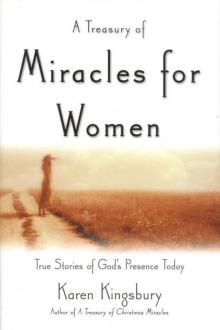 A Treasury of Miracles for Women
A Treasury of Miracles for Women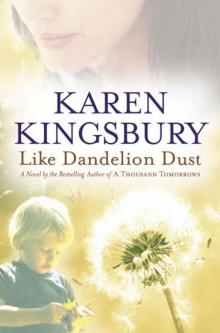 Like Dandelion Dust
Like Dandelion Dust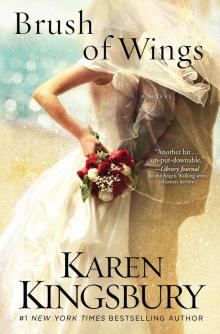 Brush of Wings
Brush of Wings The Tuesday Morning Collection
The Tuesday Morning Collection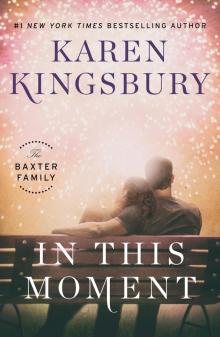 A Moment of Weakness
A Moment of Weakness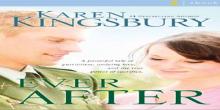 Ever After
Ever After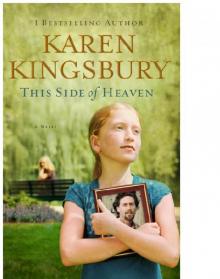 This Side of Heaven
This Side of Heaven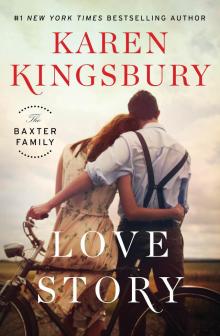 Unlocked: A Love Story
Unlocked: A Love Story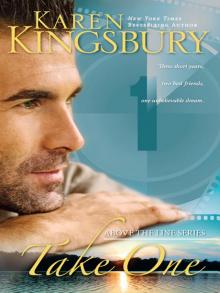 Take One
Take One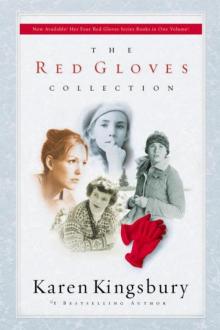 The Red Gloves Collection
The Red Gloves Collection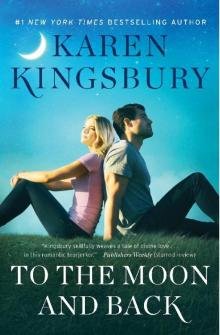 To the Moon and Back
To the Moon and Back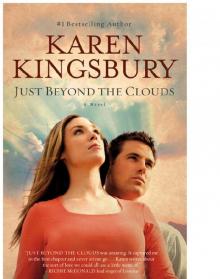 Just Beyond the Clouds
Just Beyond the Clouds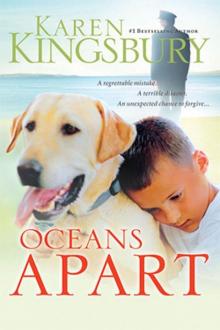 Oceans Apart
Oceans Apart A Baxter Family Christmas
A Baxter Family Christmas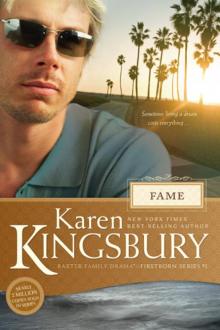 Fame
Fame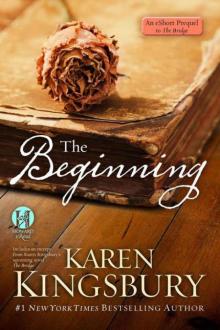 The Beginning
The Beginning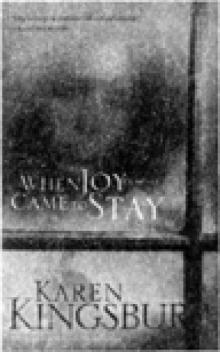 On Every Side
On Every Side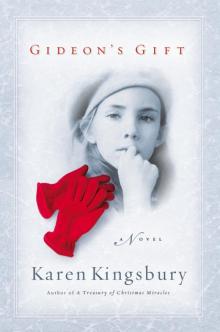 Gideon's Gift
Gideon's Gift Forgiven
Forgiven A Kingsbury Collection
A Kingsbury Collection Found
Found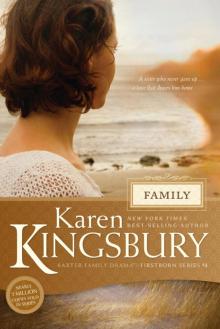 Family
Family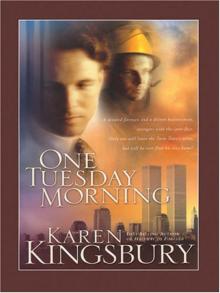 One Tuesday Morning
One Tuesday Morning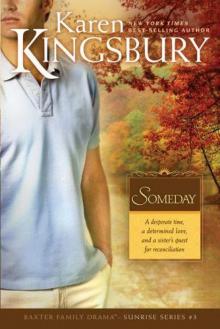 Someday
Someday Take Three
Take Three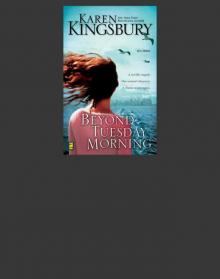 Beyond Tuesday Morning
Beyond Tuesday Morning Unlocked
Unlocked Take Four
Take Four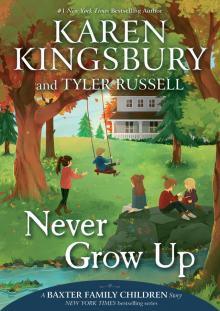 Never Grow Up
Never Grow Up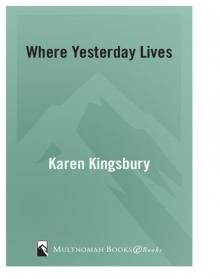 Where Yesterday Lives
Where Yesterday Lives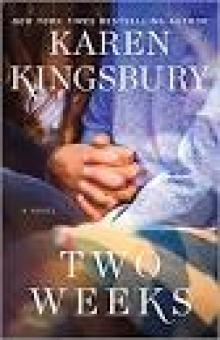 Two Weeks
Two Weeks When Joy Came to Stay
When Joy Came to Stay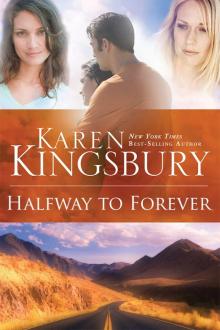 Halfway to Forever
Halfway to Forever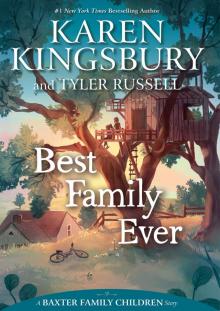 Best Family Ever
Best Family Ever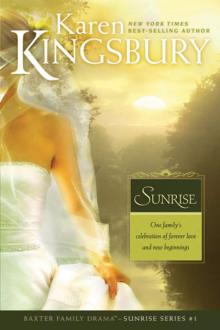 Sunrise
Sunrise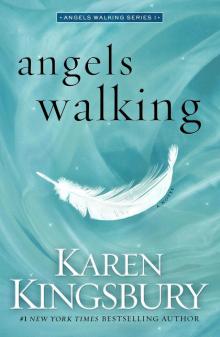 Angels Walking
Angels Walking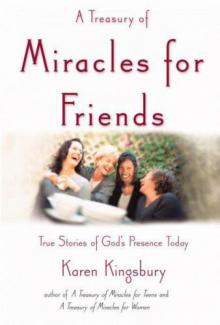 A Treasury of Miracles for Friends
A Treasury of Miracles for Friends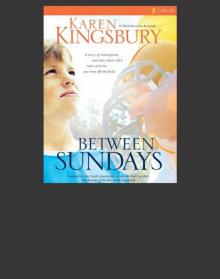 Between Sundays
Between Sundays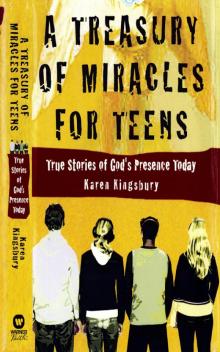 A Treasury of Miracles for Teens
A Treasury of Miracles for Teens A Thousand Tomorrows / Just Beyond the Clouds
A Thousand Tomorrows / Just Beyond the Clouds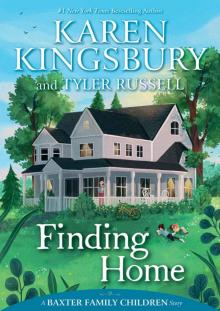 Finding Home (A Baxter Family Children Story Book 2)
Finding Home (A Baxter Family Children Story Book 2)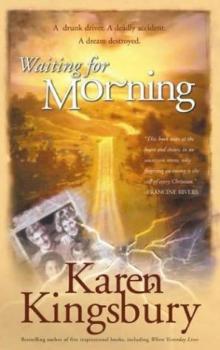 Waiting for Morning
Waiting for Morning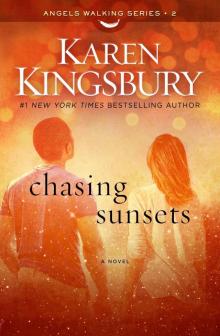 Chasing Sunsets
Chasing Sunsets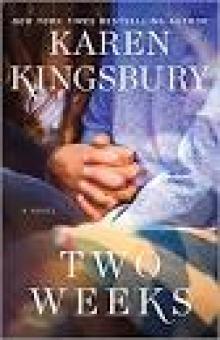 Two Weeks: A Novel (The Baxter Family)
Two Weeks: A Novel (The Baxter Family) Coming Home
Coming Home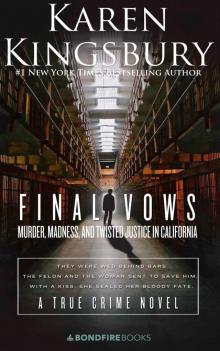 Final Vows
Final Vows Sunset
Sunset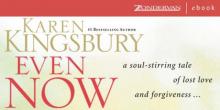 Even Now
Even Now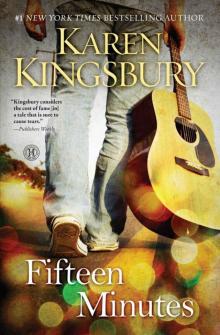 Fifteen Minutes: A Novel
Fifteen Minutes: A Novel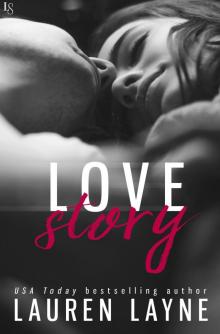 Love Story
Love Story The Bridge: A Novel
The Bridge: A Novel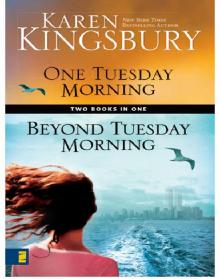 One Tuesday Morning & Beyond Tuesday Morning Compilation
One Tuesday Morning & Beyond Tuesday Morning Compilation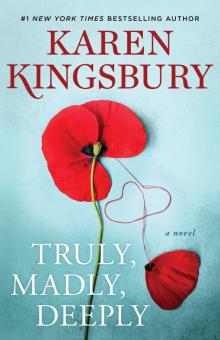 Truly, Madly, Deeply
Truly, Madly, Deeply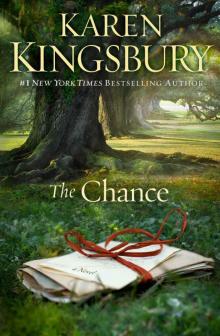 The Chance: A Novel
The Chance: A Novel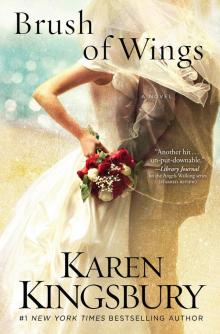 A Brush of Wings
A Brush of Wings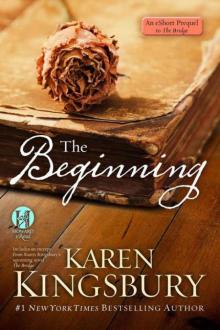 The Beginning: An eShort Prequel to the Bridge
The Beginning: An eShort Prequel to the Bridge A Thousand Tomorrows & Just Beyond The Clouds Omnibus
A Thousand Tomorrows & Just Beyond The Clouds Omnibus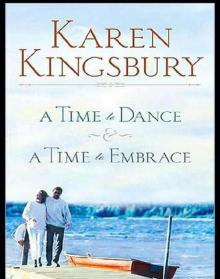 A Time to Dance/A Time to Embrace
A Time to Dance/A Time to Embrace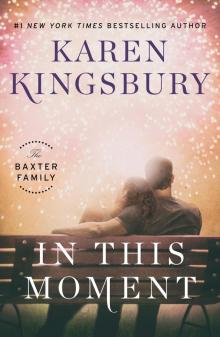 In This Moment
In This Moment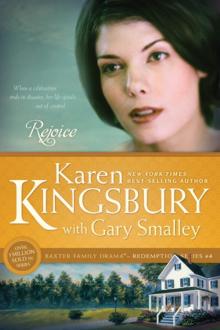 Rejoice
Rejoice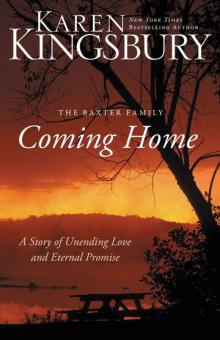 Coming Home: A Story of Undying Hope
Coming Home: A Story of Undying Hope